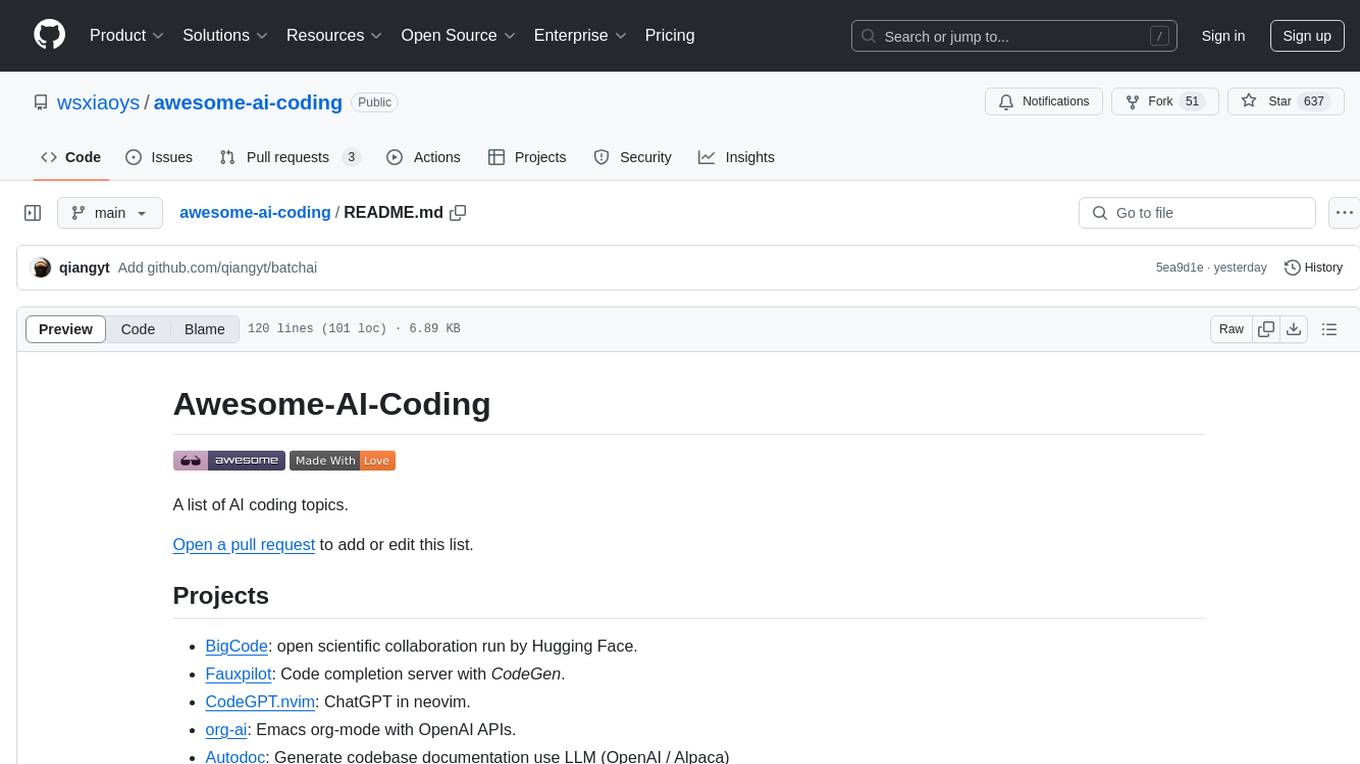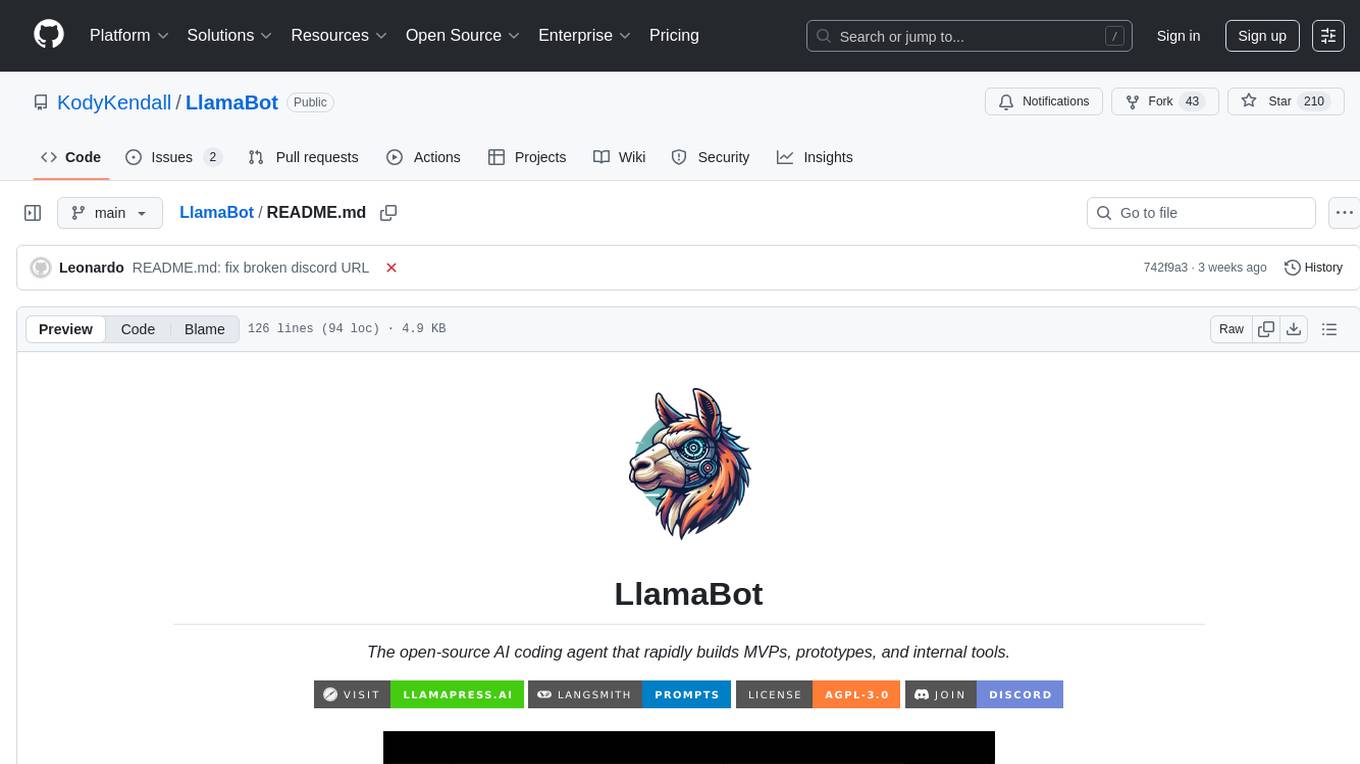AI tools for codegen
Related Tools:
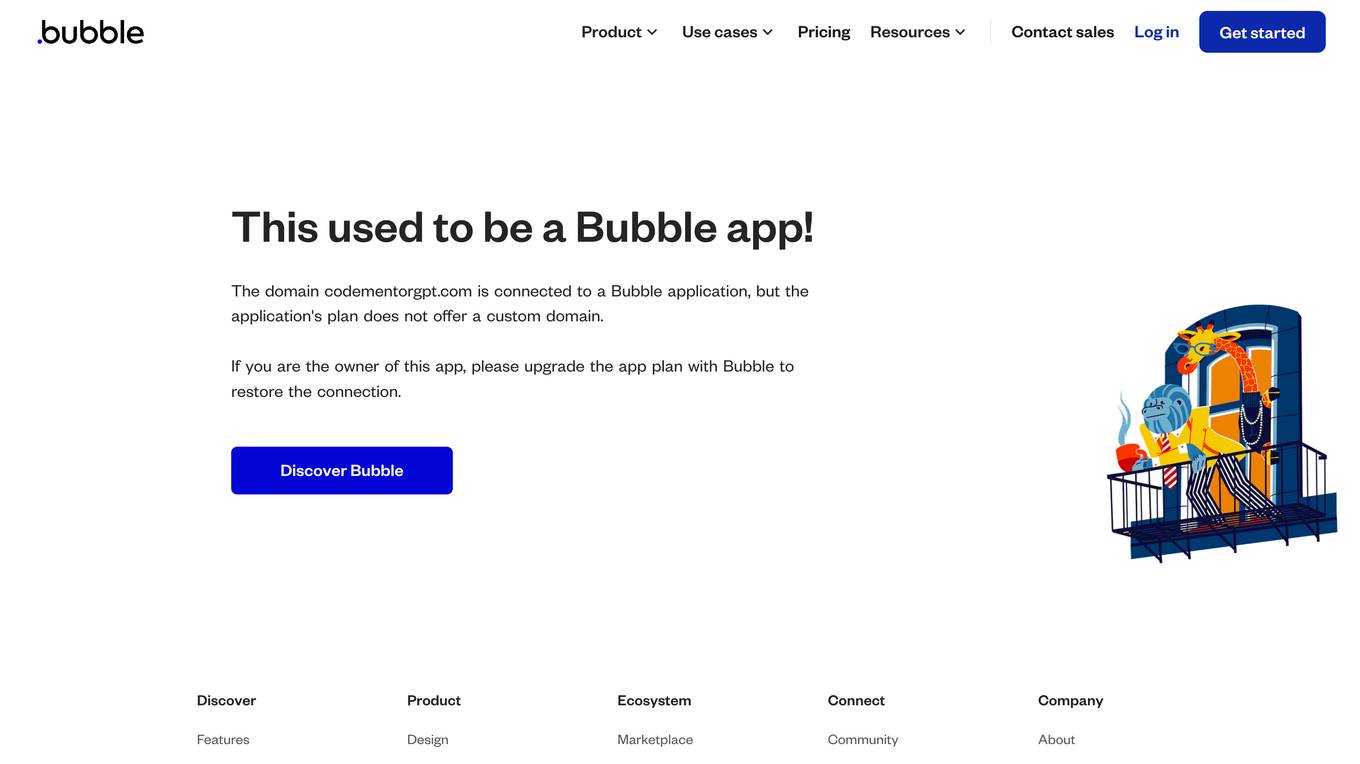
Nursing School Selection Guide
The website provides detailed information for beginners on selecting a nursing school, including points to consider, advantages and disadvantages of attending school, and what to study at nursing schools. It covers topics such as the curriculum, practical skills, and the importance of selecting a school based on personal goals and desired qualifications. The site also discusses the availability of dormitories, the purpose of nursing education, and the importance of clarifying learning goals and qualifications when choosing a nursing school.

Site Not Found
The website page seems to be a placeholder or error page with the message 'Site Not Found'. It indicates that the user may not have deployed an app yet or may have an empty directory. The page suggests referring to hosting documentation to deploy the first app. The site appears to be under construction or experiencing technical issues.
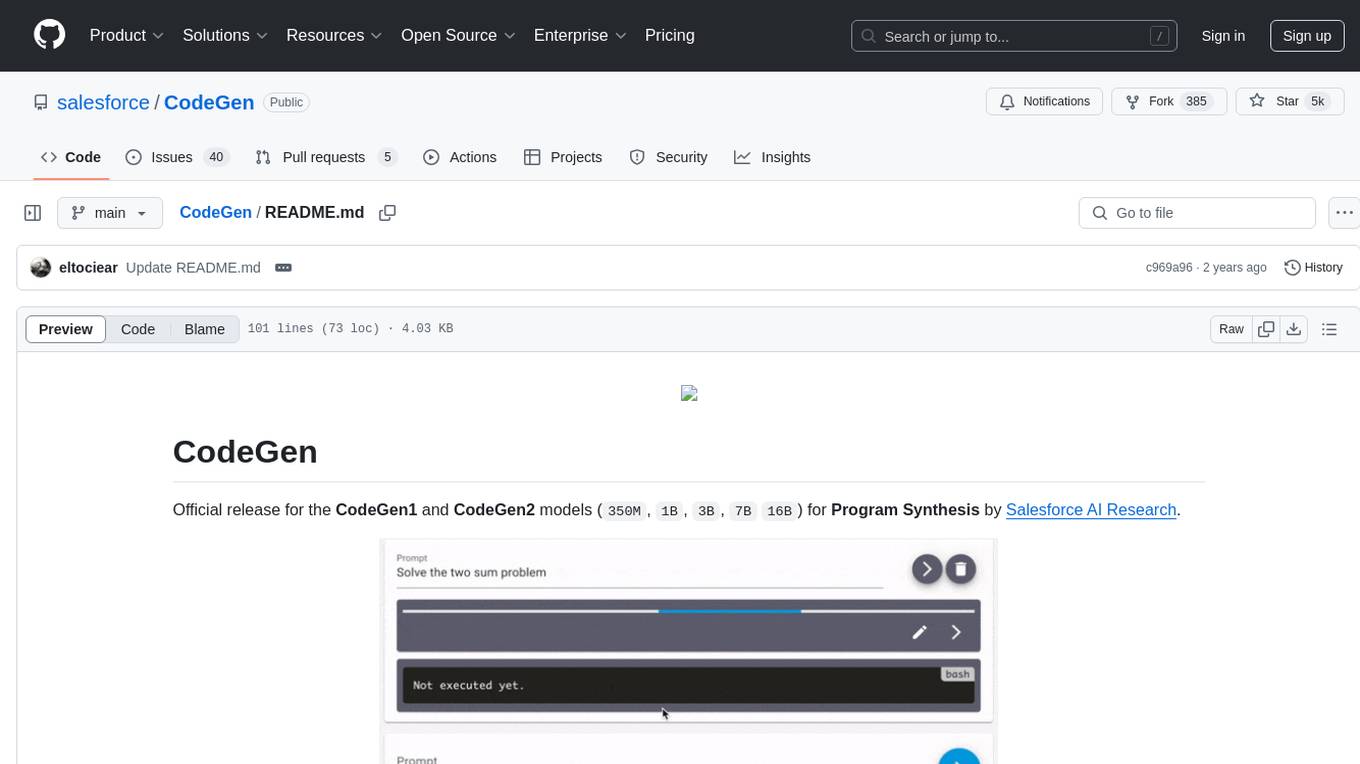
CodeGen
CodeGen is an official release of models for Program Synthesis by Salesforce AI Research. It includes CodeGen1 and CodeGen2 models with varying parameters. The latest version, CodeGen2.5, outperforms previous models. The tool is designed for code generation tasks using large language models trained on programming and natural languages. Users can access the models through the Hugging Face Hub and utilize them for program synthesis and infill sampling. The accompanying Jaxformer library provides support for data pre-processing, training, and fine-tuning of the CodeGen models.
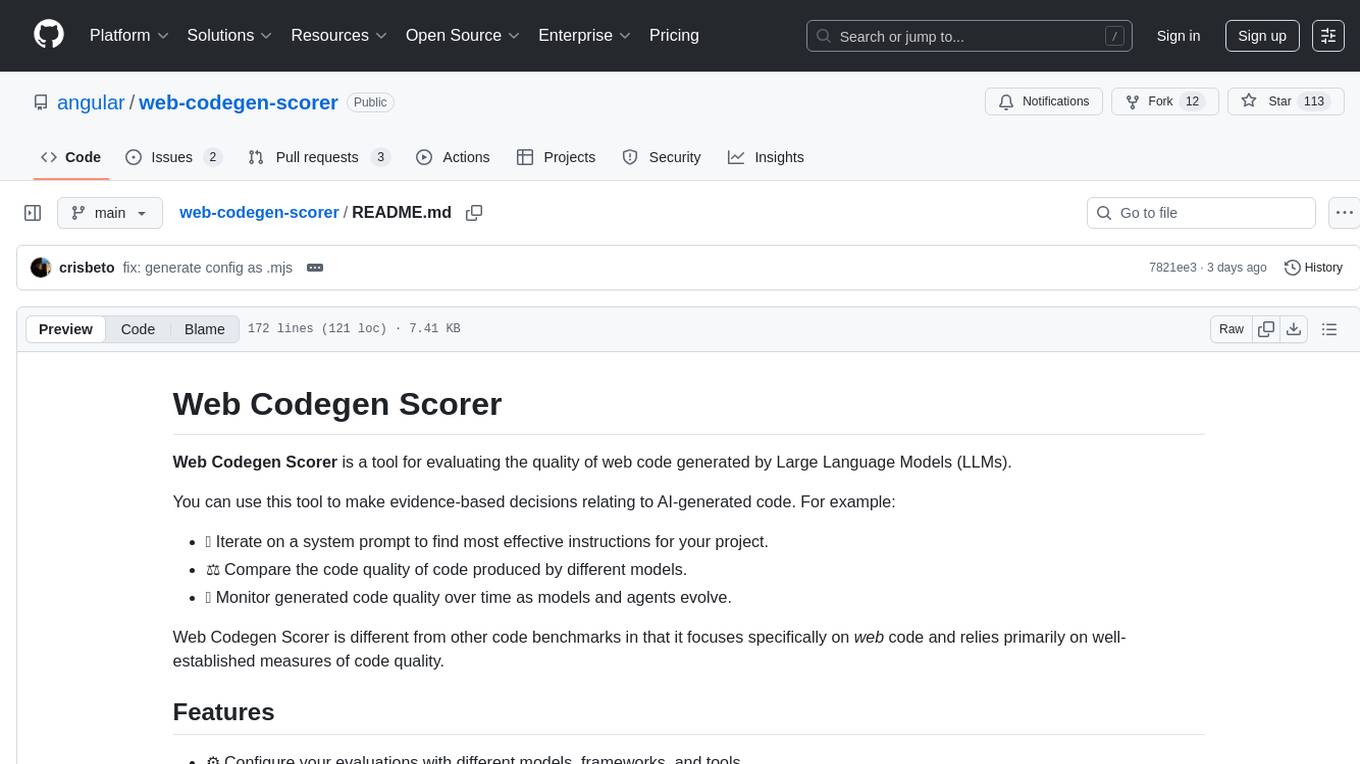
web-codegen-scorer
Web Codegen Scorer is a tool designed to evaluate the quality of web code generated by Large Language Models (LLMs). It allows users to make evidence-based decisions related to AI-generated code by iterating on system prompts, comparing code quality from different models, and monitoring code quality over time. The tool focuses specifically on web code and offers various features such as configuring evaluations, specifying system instructions, using built-in checks for code quality, automatically repairing issues, and viewing results with an intuitive report viewer UI.
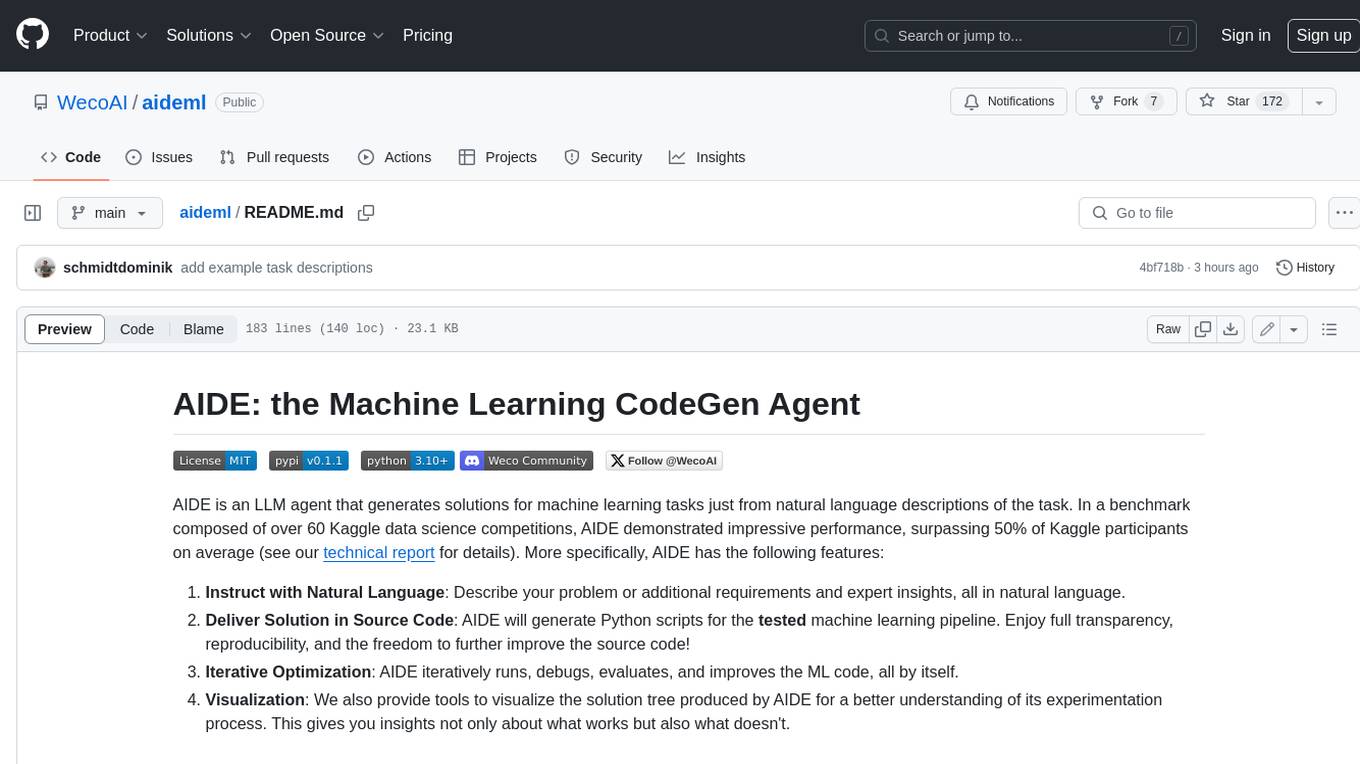
aideml
AIDE is a machine learning code generation agent that can generate solutions for machine learning tasks from natural language descriptions. It has the following features: 1. **Instruct with Natural Language**: Describe your problem or additional requirements and expert insights, all in natural language. 2. **Deliver Solution in Source Code**: AIDE will generate Python scripts for the **tested** machine learning pipeline. Enjoy full transparency, reproducibility, and the freedom to further improve the source code! 3. **Iterative Optimization**: AIDE iteratively runs, debugs, evaluates, and improves the ML code, all by itself. 4. **Visualization**: We also provide tools to visualize the solution tree produced by AIDE for a better understanding of its experimentation process. This gives you insights not only about what works but also what doesn't. AIDE has been benchmarked on over 60 Kaggle data science competitions and has demonstrated impressive performance, surpassing 50% of Kaggle participants on average. It is particularly well-suited for tasks that require complex data preprocessing, feature engineering, and model selection.
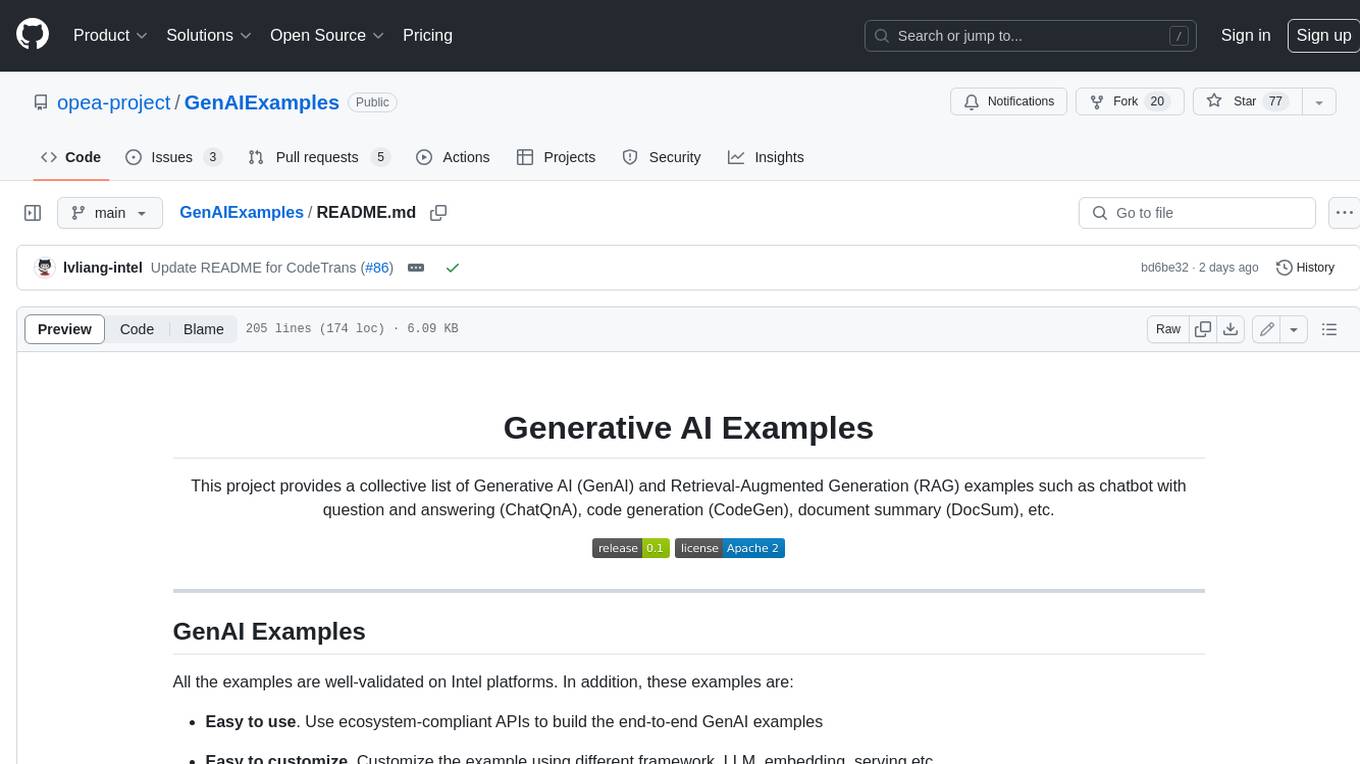
GenAIExamples
This project provides a collective list of Generative AI (GenAI) and Retrieval-Augmented Generation (RAG) examples such as chatbot with question and answering (ChatQnA), code generation (CodeGen), document summary (DocSum), etc.
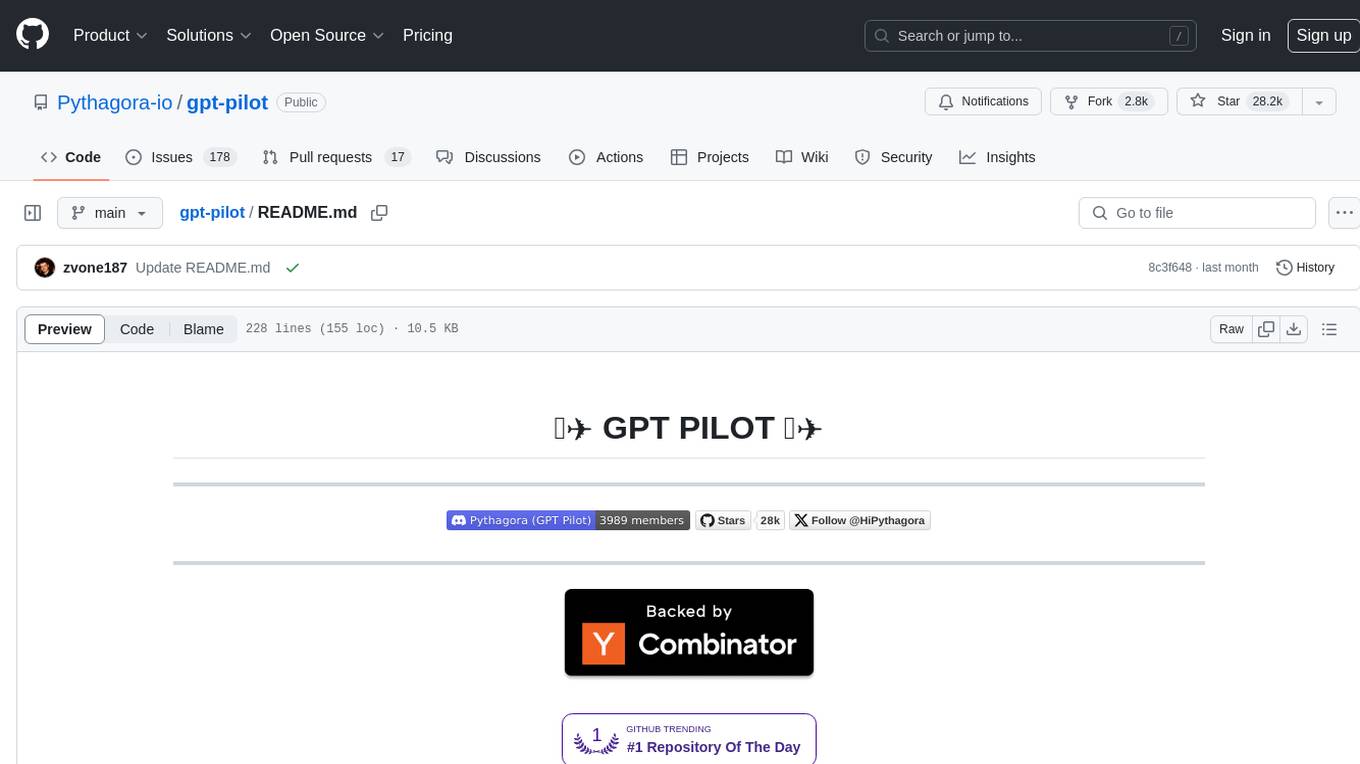
gpt-pilot
GPT Pilot is a core technology for the Pythagora VS Code extension, aiming to provide the first real AI developer companion. It goes beyond autocomplete, helping with writing full features, debugging, issue discussions, and reviews. The tool utilizes LLMs to generate production-ready apps, with developers overseeing the implementation. GPT Pilot works step by step like a developer, debugging issues as they arise. It can work at any scale, filtering out code to show only relevant parts to the AI during tasks. Contributions are welcome, with debugging and telemetry being key areas of focus for improvement.
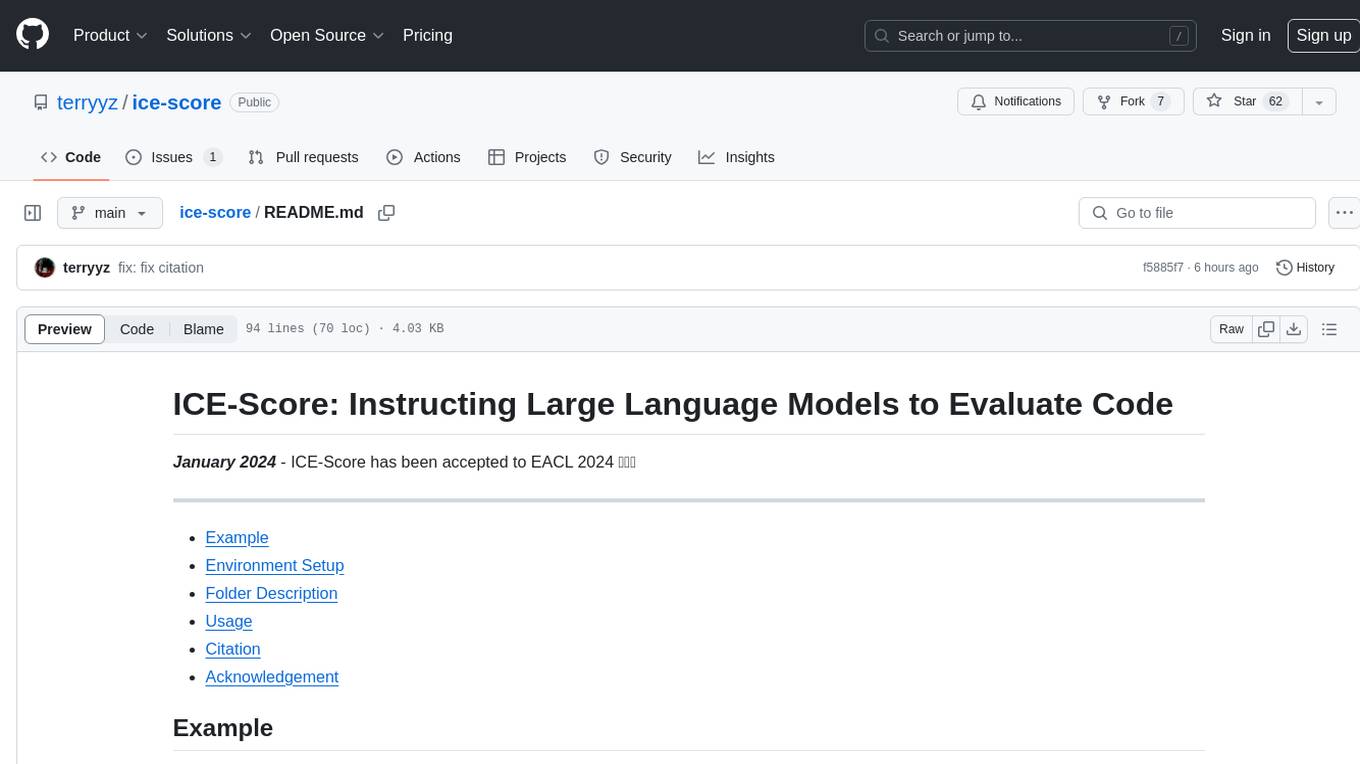
ice-score
ICE-Score is a tool designed to instruct large language models to evaluate code. It provides a minimum viable product (MVP) for evaluating generated code snippets using inputs such as problem, output, task, aspect, and model. Users can also evaluate with reference code and enable zero-shot chain-of-thought evaluation. The tool is built on codegen-metrics and code-bert-score repositories and includes datasets like CoNaLa and HumanEval. ICE-Score has been accepted to EACL 2024.
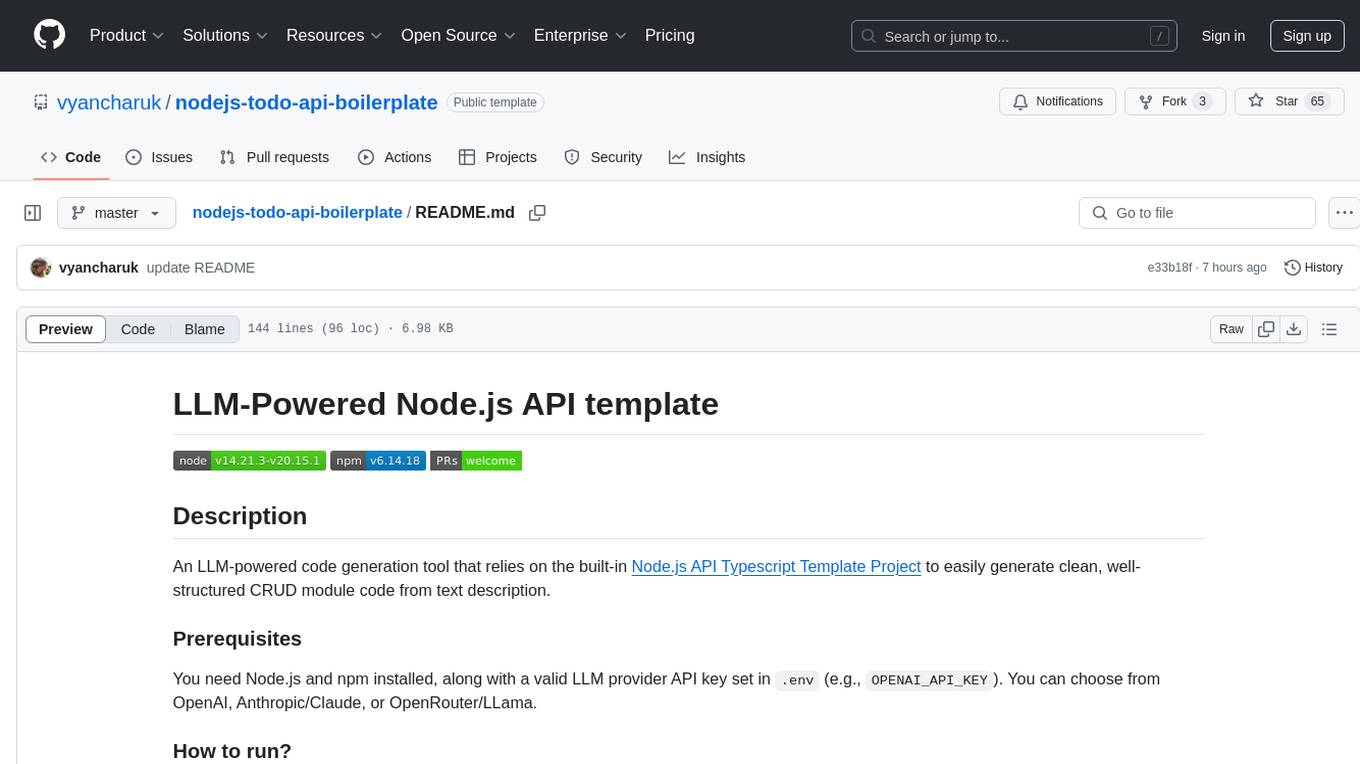
nodejs-todo-api-boilerplate
An LLM-powered code generation tool that relies on the built-in Node.js API Typescript Template Project to easily generate clean, well-structured CRUD module code from text description. It orchestrates 3 LLM micro-agents (`Developer`, `Troubleshooter` and `TestsFixer`) to generate code, fix compilation errors, and ensure passing E2E tests. The process includes module code generation, DB migration creation, seeding data, and running tests to validate output. By cycling through these steps, it guarantees consistent and production-ready CRUD code aligned with vertical slicing architecture.
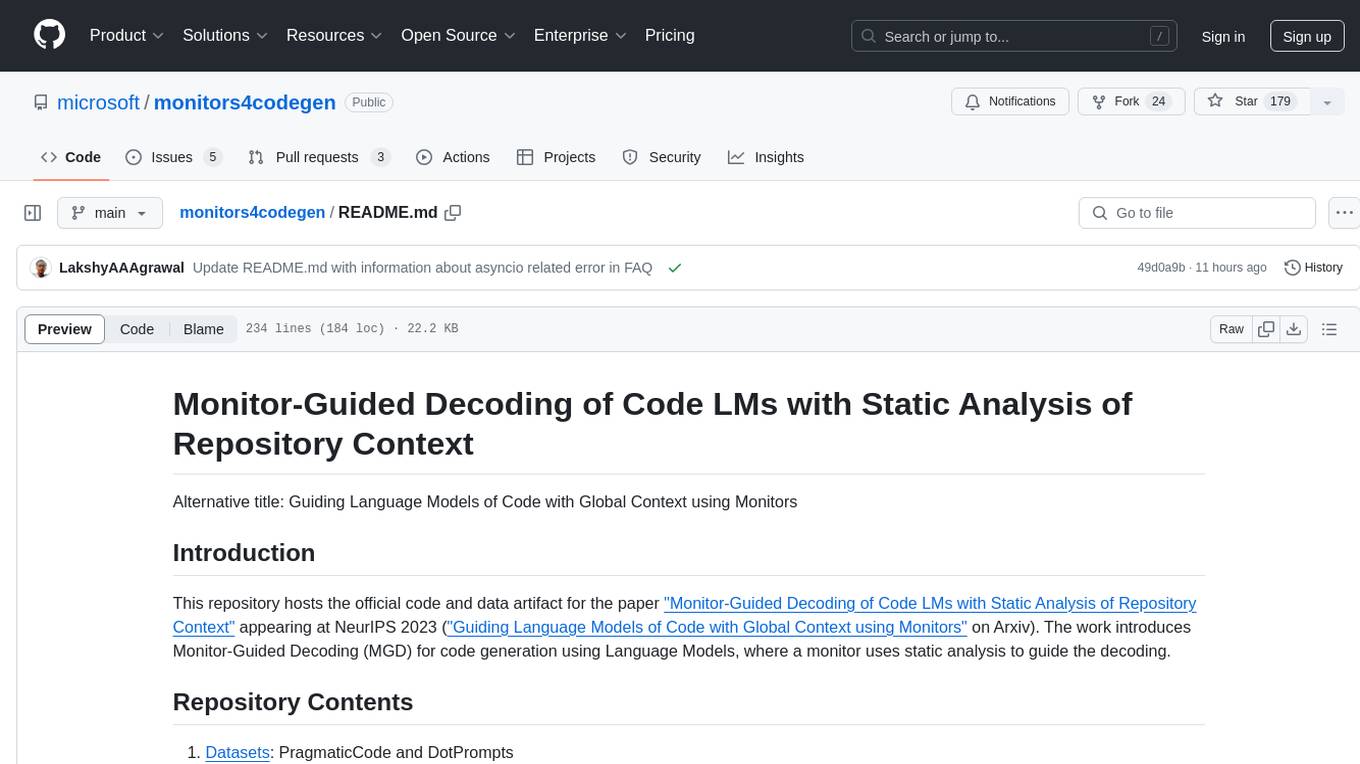
monitors4codegen
This repository hosts the official code and data artifact for the paper 'Monitor-Guided Decoding of Code LMs with Static Analysis of Repository Context'. It introduces Monitor-Guided Decoding (MGD) for code generation using Language Models, where a monitor uses static analysis to guide the decoding. The repository contains datasets, evaluation scripts, inference results, a language server client 'multilspy' for static analyses, and implementation of various monitors monitoring for different properties in 3 programming languages. The monitors guide Language Models to adhere to properties like valid identifier dereferences, correct number of arguments to method calls, typestate validity of method call sequences, and more.
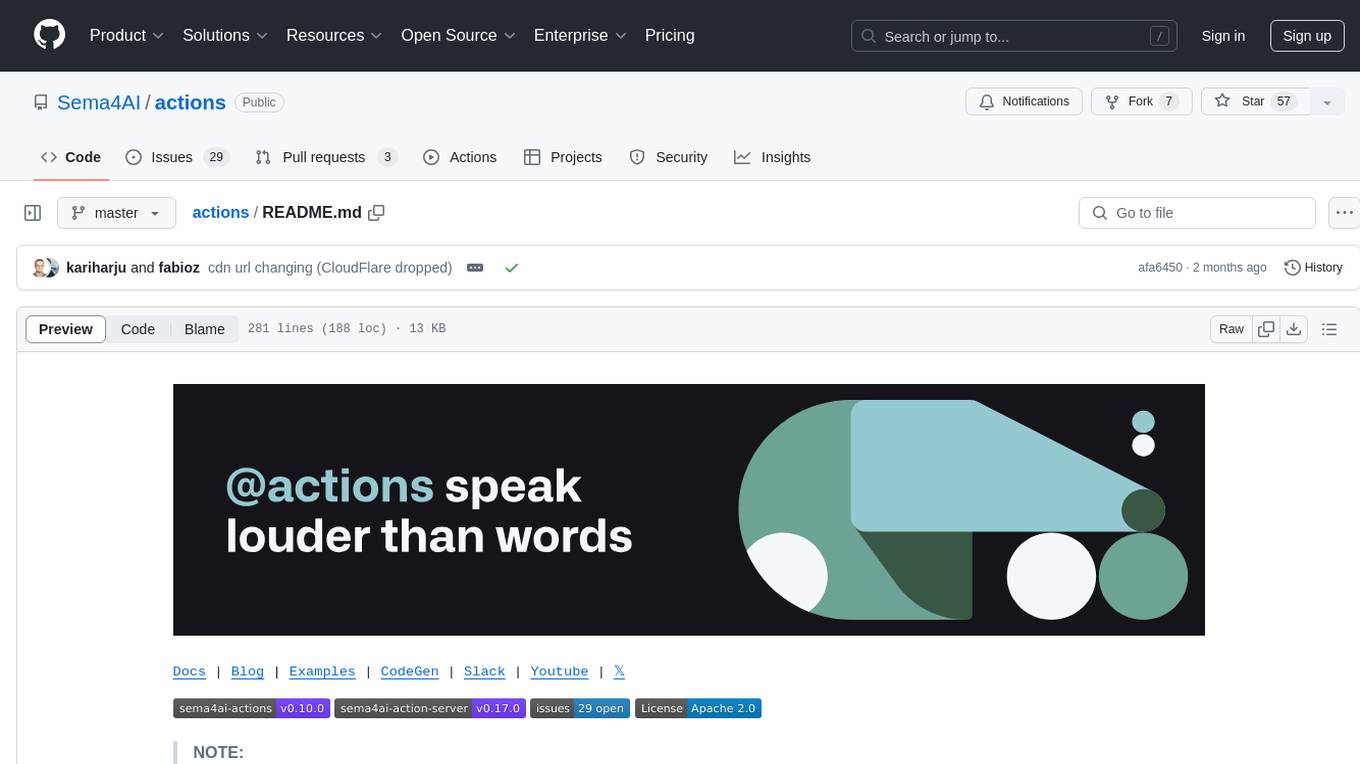
actions
Sema4.ai Action Server is a tool that allows users to build semantic actions in Python to connect AI agents with real-world applications. It enables users to create custom actions, skills, loaders, and plugins that securely connect any AI Assistant platform to data and applications. The tool automatically creates and exposes an API based on function declaration, type hints, and docstrings by adding '@action' to Python scripts. It provides an end-to-end stack supporting various connections between AI and user's apps and data, offering ease of use, security, and scalability.
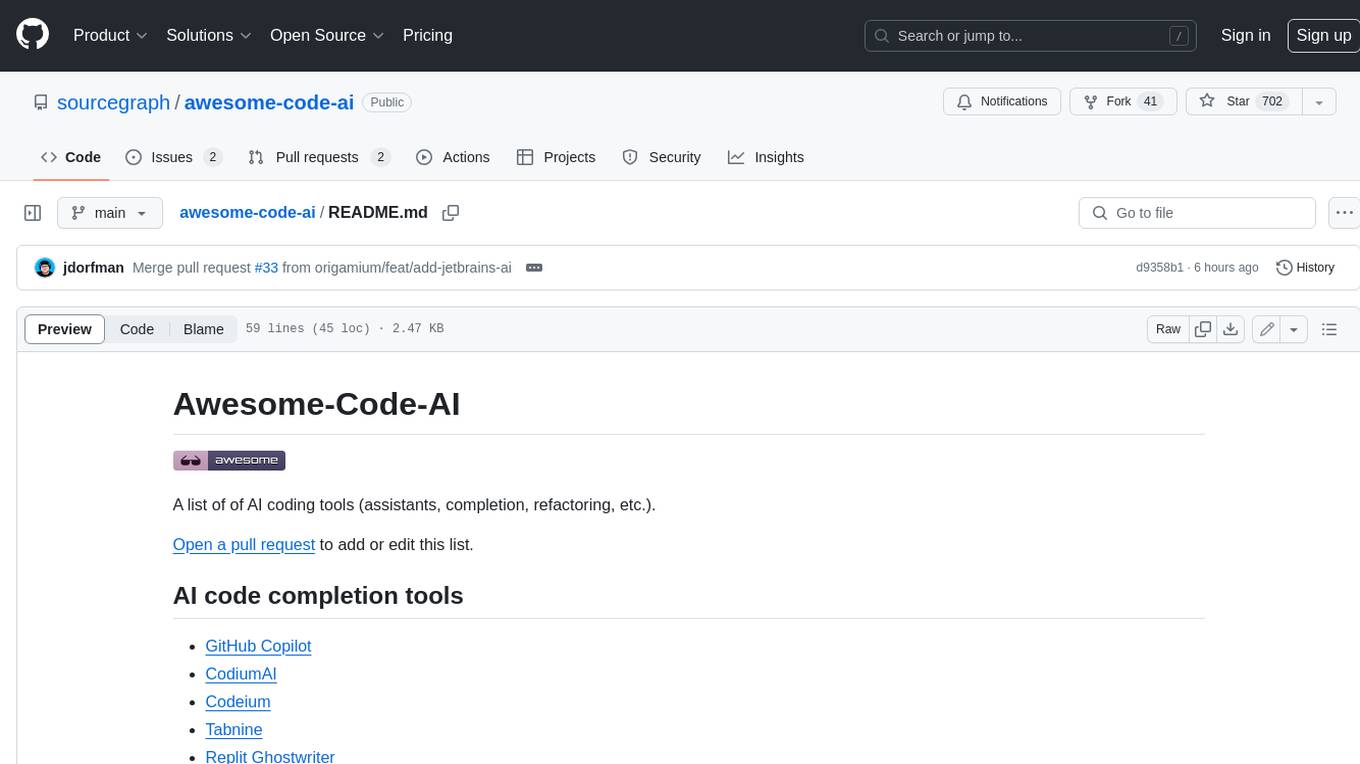
awesome-code-ai
A curated list of AI coding tools, including code completion, refactoring, and assistants. This list includes both open-source and commercial tools, as well as tools that are still in development. Some of the most popular AI coding tools include GitHub Copilot, CodiumAI, Codeium, Tabnine, and Replit Ghostwriter.
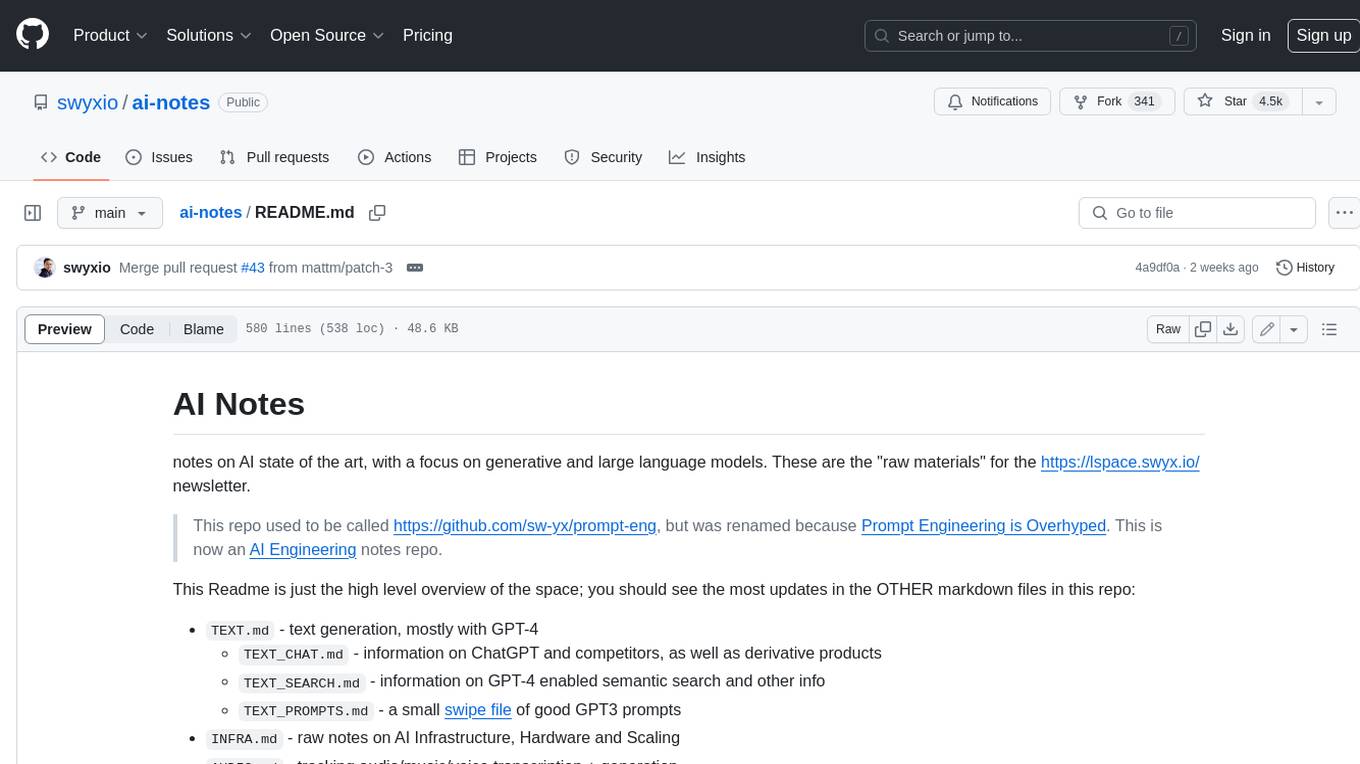
ai-notes
Notes on AI state of the art, with a focus on generative and large language models. These are the "raw materials" for the https://lspace.swyx.io/ newsletter. This repo used to be called https://github.com/sw-yx/prompt-eng, but was renamed because Prompt Engineering is Overhyped. This is now an AI Engineering notes repo.

LLM4SE
The collection is actively updated with the help of an internal literature search engine.
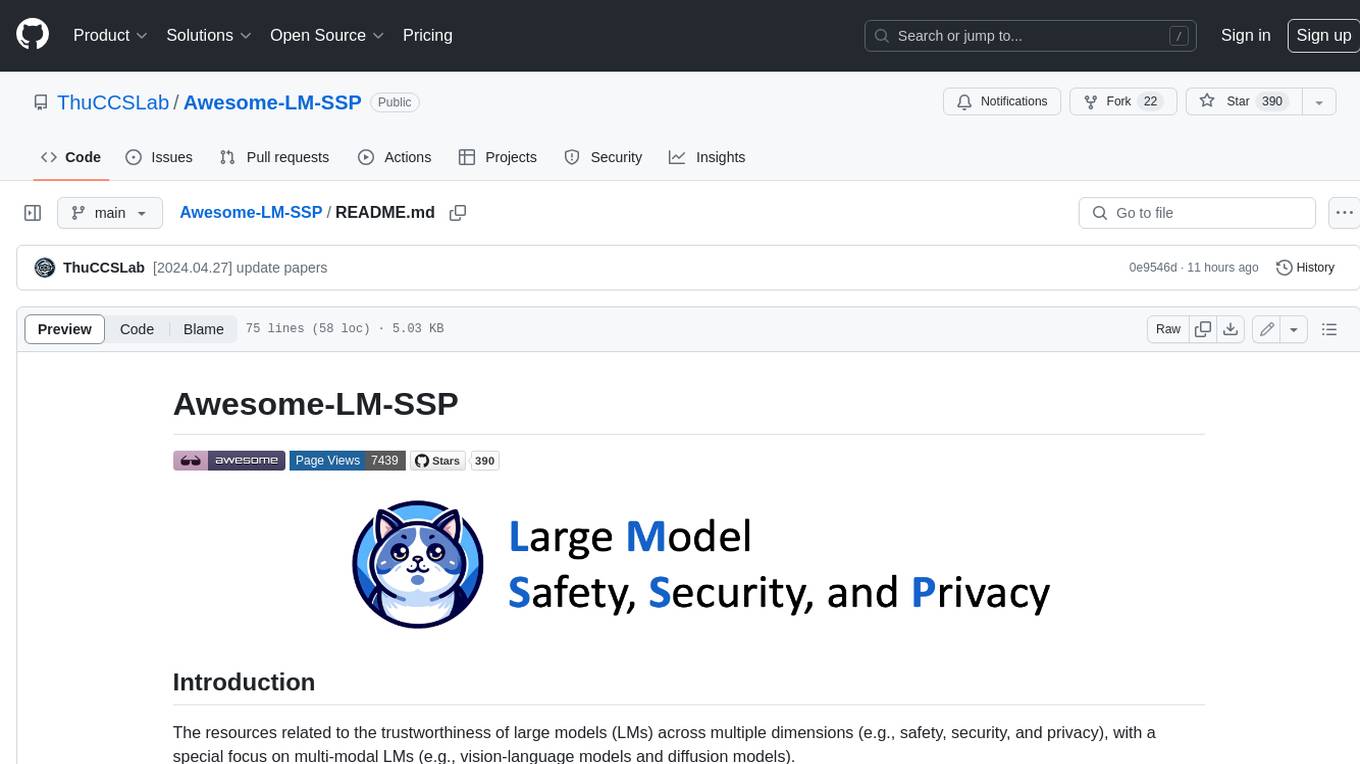
Awesome-LM-SSP
The Awesome-LM-SSP repository is a collection of resources related to the trustworthiness of large models (LMs) across multiple dimensions, with a special focus on multi-modal LMs. It includes papers, surveys, toolkits, competitions, and leaderboards. The resources are categorized into three main dimensions: safety, security, and privacy. Within each dimension, there are several subcategories. For example, the safety dimension includes subcategories such as jailbreak, alignment, deepfake, ethics, fairness, hallucination, prompt injection, and toxicity. The security dimension includes subcategories such as adversarial examples, poisoning, and system security. The privacy dimension includes subcategories such as contamination, copyright, data reconstruction, membership inference attacks, model extraction, privacy-preserving computation, and unlearning.

pezzo
Pezzo is a fully cloud-native and open-source LLMOps platform that allows users to observe and monitor AI operations, troubleshoot issues, save costs and latency, collaborate, manage prompts, and deliver AI changes instantly. It supports various clients for prompt management, observability, and caching. Users can run the full Pezzo stack locally using Docker Compose, with prerequisites including Node.js 18+, Docker, and a GraphQL Language Feature Support VSCode Extension. Contributions are welcome, and the source code is available under the Apache 2.0 License.
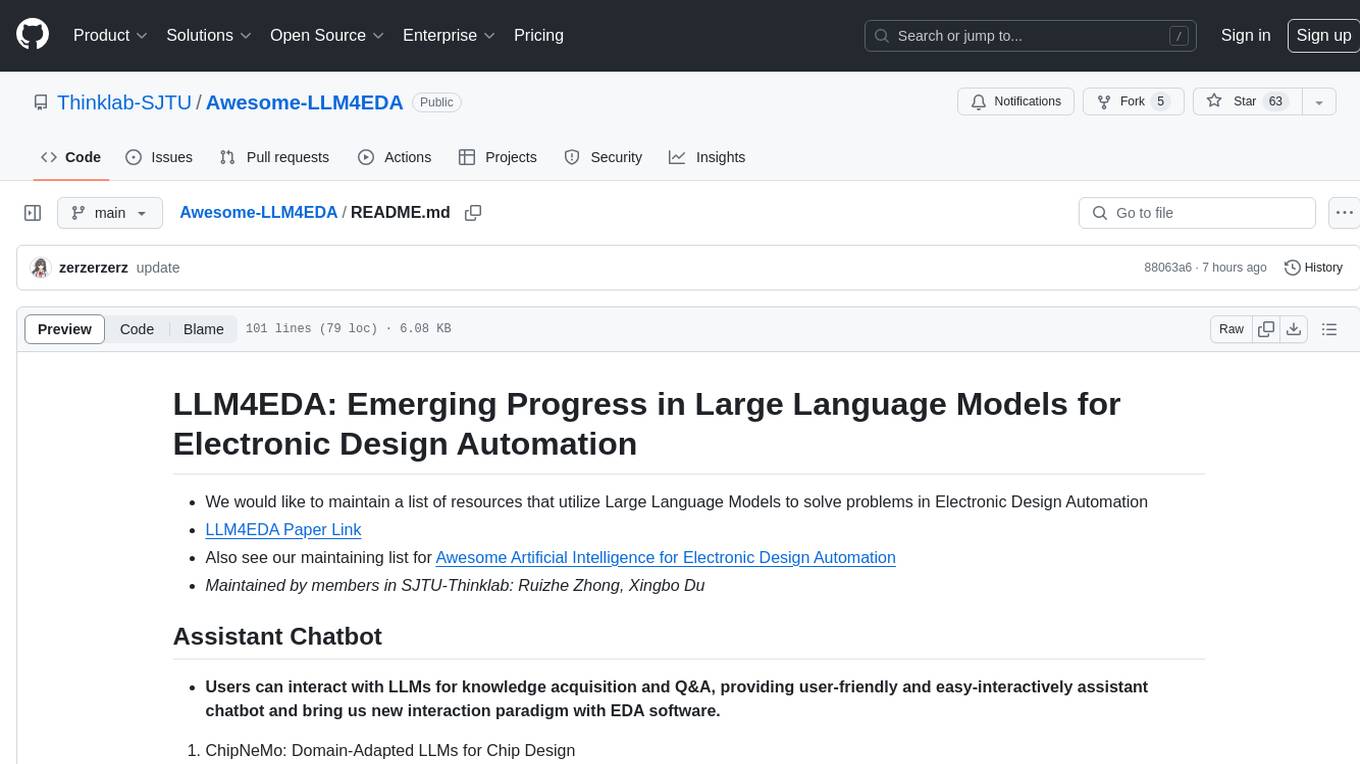
Awesome-LLM4EDA
LLM4EDA is a repository dedicated to showcasing the emerging progress in utilizing Large Language Models for Electronic Design Automation. The repository includes resources, papers, and tools that leverage LLMs to solve problems in EDA. It covers a wide range of applications such as knowledge acquisition, code generation, code analysis, verification, and large circuit models. The goal is to provide a comprehensive understanding of how LLMs can revolutionize the EDA industry by offering innovative solutions and new interaction paradigms.
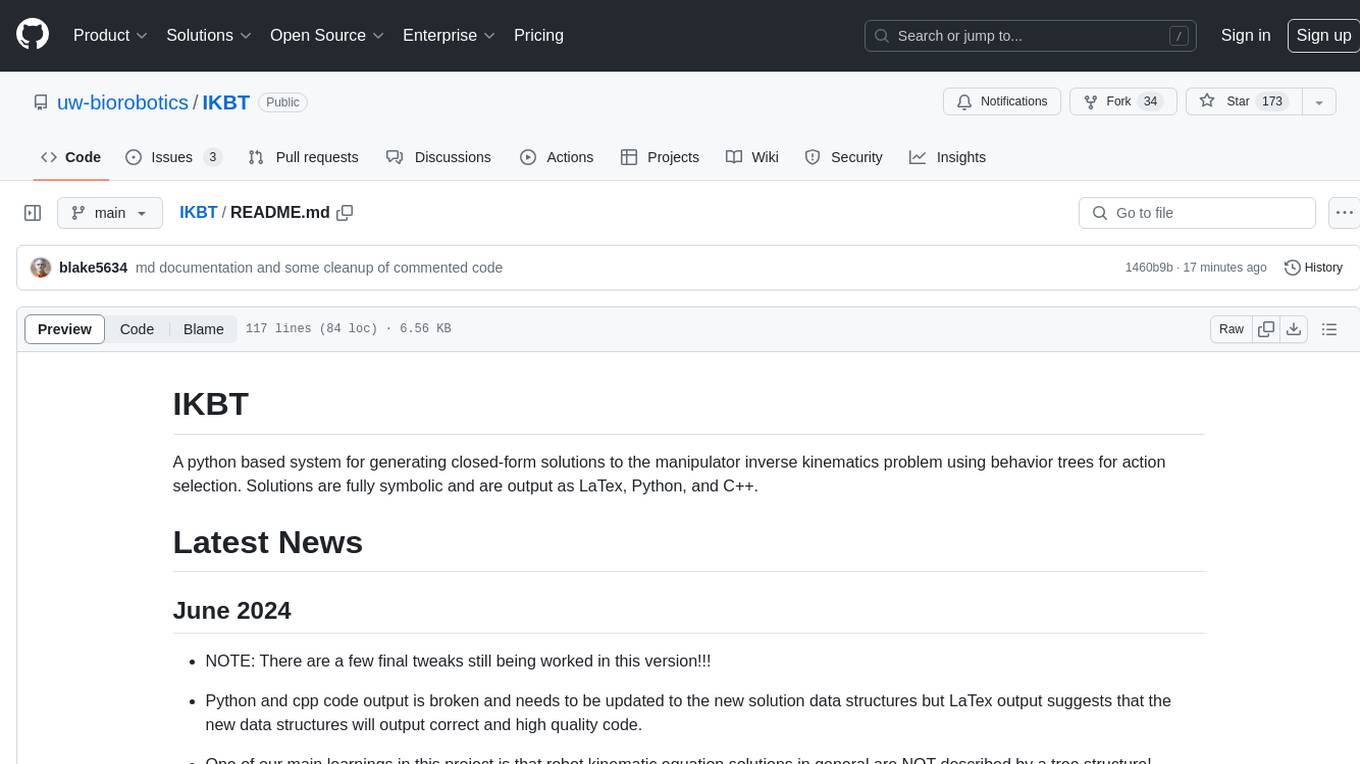
IKBT
IKBT is a Python-based system for generating closed-form solutions to the manipulator inverse kinematics problem using behavior trees for action selection. Solutions are fully symbolic and are output as LaTex, Python, and C++. The tool automates closed-form kinematics solving by organizing solution algorithms in a behavior tree, incorporating frequently used knowledge, generating a dependency graph of joint variables, and providing features for automatic documentation and code generation. It is implemented in Python with minimal dependencies outside of the standard Python distribution.
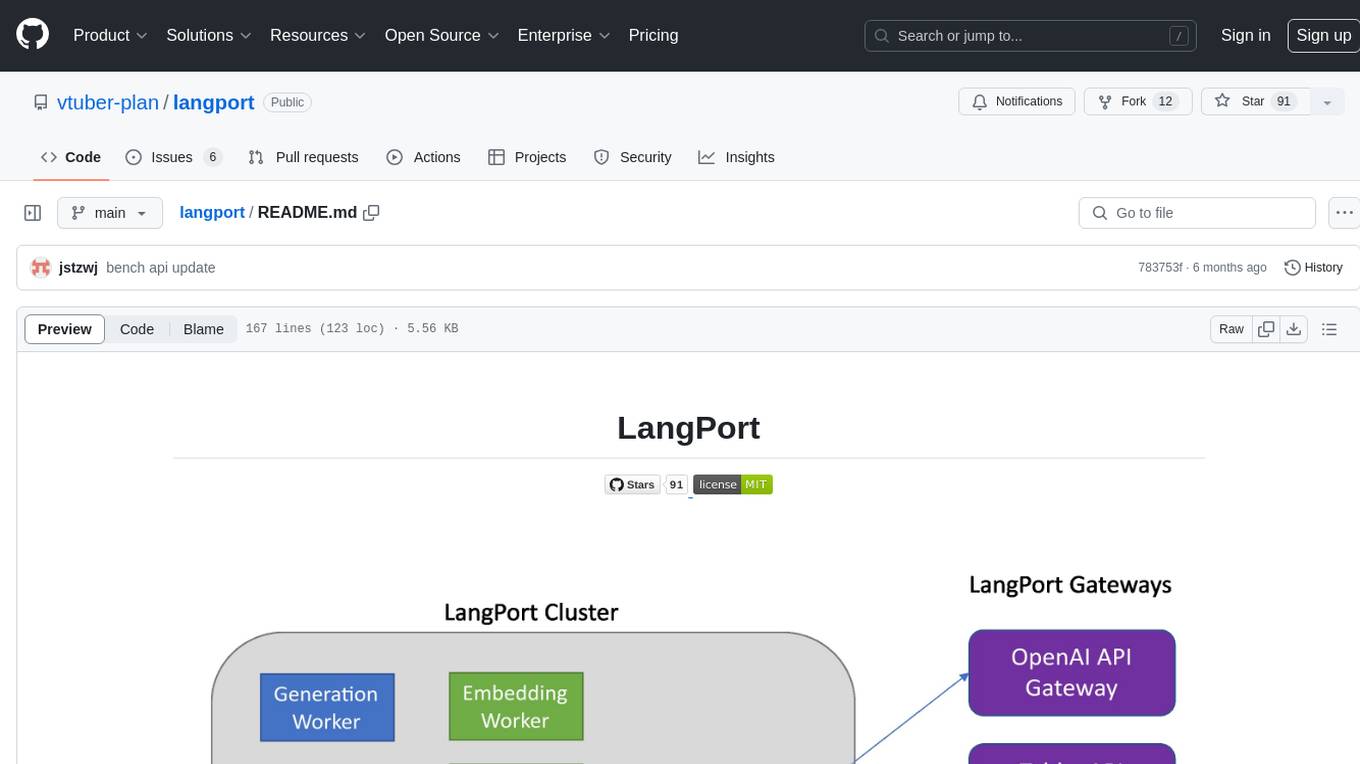
langport
LangPort is an open-source platform for serving large language models. It aims to provide a super fast LLM inference service with core features including Huggingface transformers support, distributed serving system, streaming generation, batch inference, and support for various model architectures. It offers compatibility with OpenAI, FauxPilot, HuggingFace, and Tabby APIs. The project supports model architectures like LLaMa, GLM, GPT2, and GPT Neo, and has been tested with models such as NingYu, Vicuna, ChatGLM, and WizardLM. LangPort also provides features like dynamic batch inference, int4 quantization, and generation logprobs parameter.

agentok
Agentok Studio is a visual tool built for AutoGen, a cutting-edge agent framework from Microsoft and various contributors. It offers intuitive visual tools to simplify the construction and management of complex agent-based workflows. Users can create workflows visually as graphs, chat with agents, and share flow templates. The tool is designed to streamline the development process for creators and developers working on next-generation Multi-Agent Applications.
